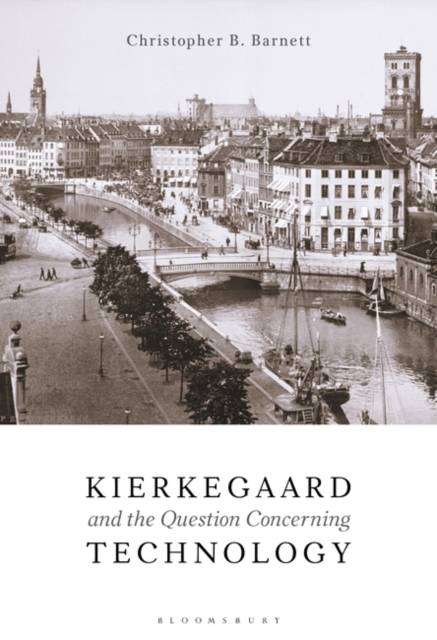
- Afhalen na 1 uur in een winkel met voorraad
- Gratis thuislevering in België vanaf € 30
- Ruim aanbod met 7 miljoen producten
- Afhalen na 1 uur in een winkel met voorraad
- Gratis thuislevering in België vanaf € 30
- Ruim aanbod met 7 miljoen producten
Omschrijving
Over the last several decades, technology has emerged as an important area of interest for both philosophers and theologians. Yet, despite his status as one of modernity's seminal thinkers, Søren Kierkegaard is not often seen as one who contributed to the field. Kierkegaard and the Question Concerning Technology argues otherwise. Christopher B. Barnett shows that many of Kierkegaard's criticisms of "the present age" relate to the increasing dominance of technology in the West, and he puts Kierkegaard's thought in conversation with subsequent thinkers who grappled with technological issues, from Martin Heidegger to Thomas Merton.
Barnett shows that Kierkegaard's writing, with its marked emphases on personal "upbuilding," stands as a place where deeper, non-technical modes of thinking are both commended and nurtured. In doing so, Barnett presents a Kierkegaard who remains relevant--perhaps all too relevant--in today's digital age.Specificaties
Betrokkenen
- Auteur(s):
- Uitgeverij:
Inhoud
- Aantal bladzijden:
- 256
- Taal:
- Engels
Eigenschappen
- Productcode (EAN):
- 9781628926668
- Verschijningsdatum:
- 22/08/2019
- Uitvoering:
- Hardcover
- Formaat:
- Genaaid
- Afmetingen:
- 160 mm x 236 mm
- Gewicht:
- 521 g

Alleen bij Standaard Boekhandel
Beoordelingen
We publiceren alleen reviews die voldoen aan de voorwaarden voor reviews. Bekijk onze voorwaarden voor reviews.







